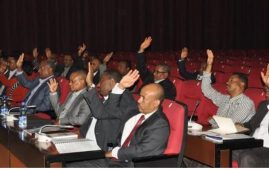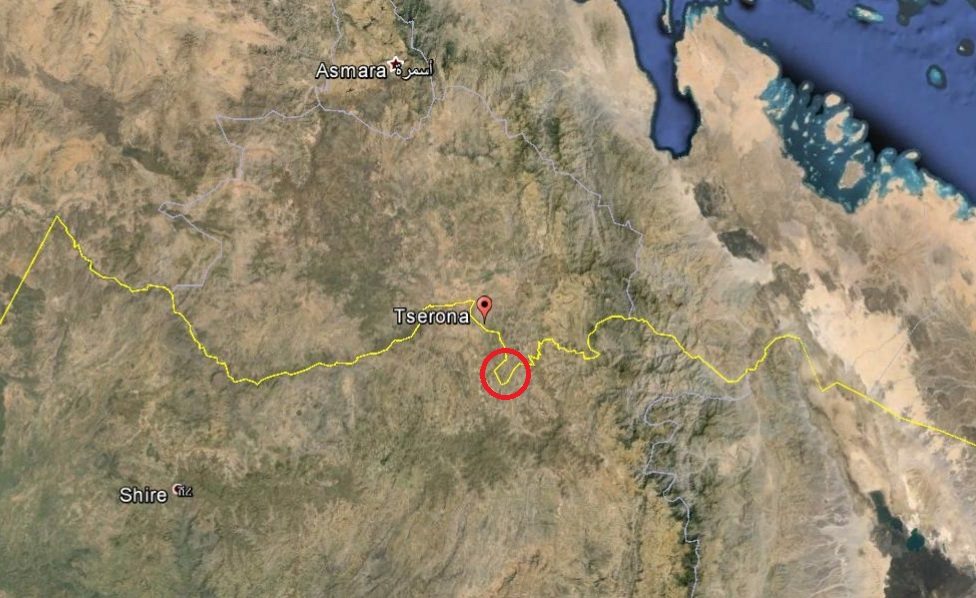All Eritreans living abroad and members of the Eritrean Diaspora are assessed 2% of all earnings. The tax is said to be voluntary but according to the Royal Canadian Mounted Police, all those who decline to pay are denied basic services, including the issue of a passport and face possible arrest or fines should they return to Eritrea, while their friends and families in Eritrea are threatened and harassed. The collection of this tax has been linked to threats and intimidation in Canada and other countries around the world.
Foreign Minister John Baird expelled the then Eritrean consul-general in May last year after previous warnings about the collection of the 2% tax from Eritrean expatriates Despite this, it appears that consular staff have continued to play a key role in collecting the tax. The consulate has denied soliciting for the tax or making threats, claiming it only provides information on methods to pay. However, according to Canadian newspapers Eritrean-Canadians have recorded phone calls in which consulate staff admitted they were still actively involved in the taxation program. Examples quoted in the Canadian media include a demand for $1,200 in “back taxes” to renew a passport for a lady who wished to visit her husband in the US. The consulate instructed her to contact an agent who would arrange for her to transfer the money to Eritrea. Another man was told his wife and child would not be allowed to leave Eritrea until he paid up. A former political prisoner was told he could not have his university transcript unless he paid $6,000 in taxes. 
Now, according to the Canadian media, the Government has sent the Eritrean consulate a diplomatic note putting the Eritrean regime on notice that its Toronto consulate must stop soliciting and collecting this “Diaspora tax”. If consulate staff do anything more than refer callers to an Eritrean government website, the Canadian Government says it will close down the diplomatic post.
The diplomatic note says that “the department notes that it continues to receive serious allegations that the Consulate of Eritrea in Toronto is violating its commitment to respect Canada’s conditions regarding the solicitation and collection of tax. Specifically, the department has received information that the consulate continues to request notices of assessment of Canadian tax returns from Eritrean-Canadian citizens, is involved in the calculation and negotiation of the amount of money owing to the Eritrean government, and further relies on agents in the community to collect funds and transfer them to Eritrea. It said that these actions must be considered as “solicitation and collection of tax.” The note goes on: “Canada expects that the only action on the part of the consulate related to the 2% reconstruction and rehabilitation tax is to refer any inquiries about the tax to the government of Eritrea directly or to a government of Eritrea website.”
It also says that “if the department continues to receive allegations that the consulate continues to solicit the tax, including through provision of amounts owing, requesting notices of assessment, and/or using agents or any similar activities, Canada will withdraw its recognition of the Eritrean consular post in Toronto.” It says this will be discussed with the next head of the consulate in Toronto when she arrives. It points out that the “Diaspora tax” system has been condemned by the United Nations, which has asked member countries to end the practice. The UN has imposed sanctions on Eritrea over its clandestine backing of armed groups in the Horn of Africa, notably Al-Shabaab, and over its refusal to acknowledge its conflict with Djibouti and its failure to return Djibouti prisoners of war.
*****
Source: Ethiopia’s Ministry of Foreign Affairs, weekly bulletin, July 18, 2014, titled “Eritrean consulate in Canada receives a final warning to stop ‘extortion’”





